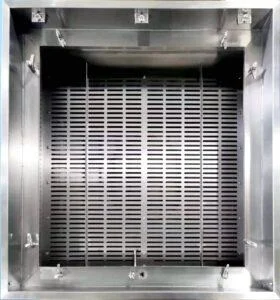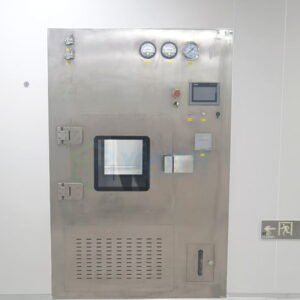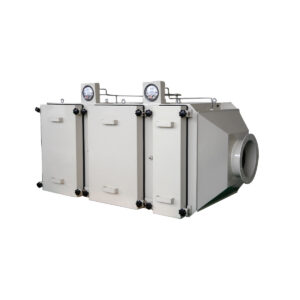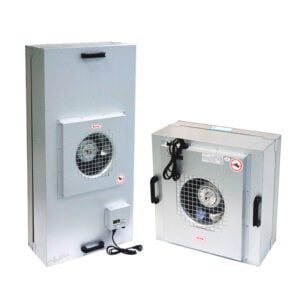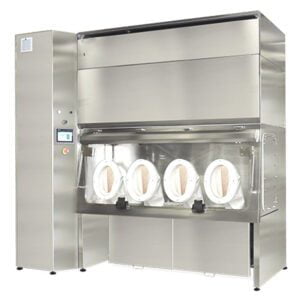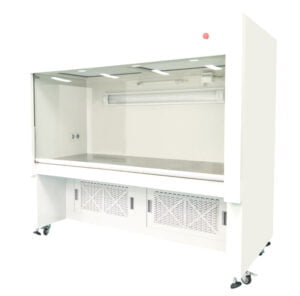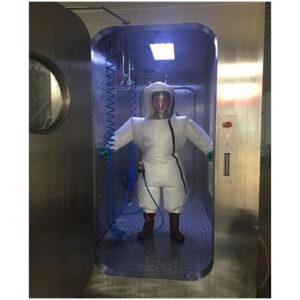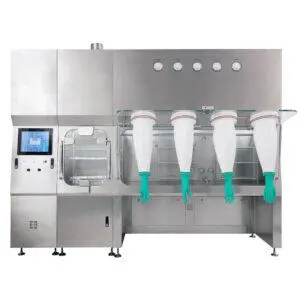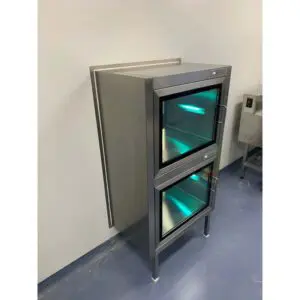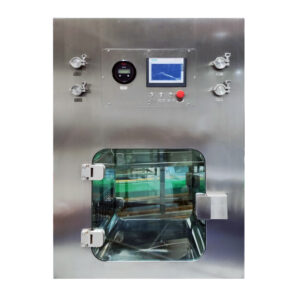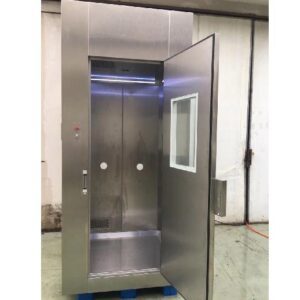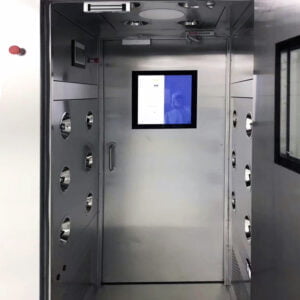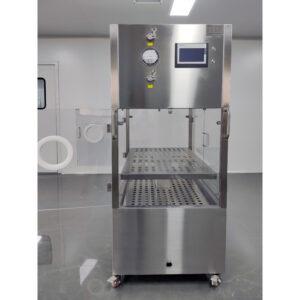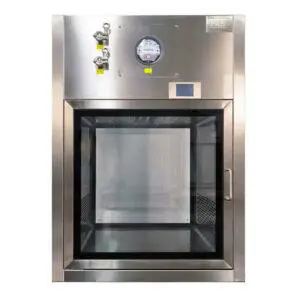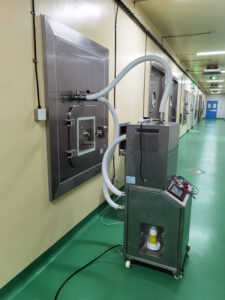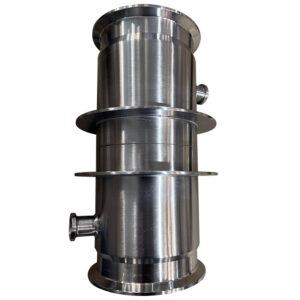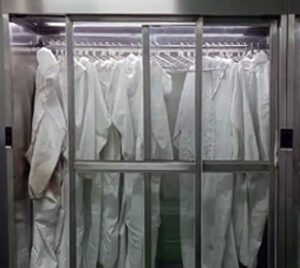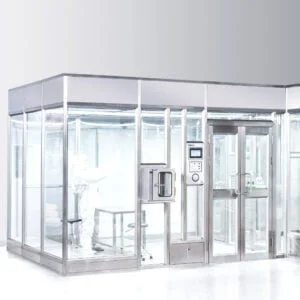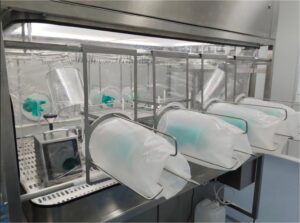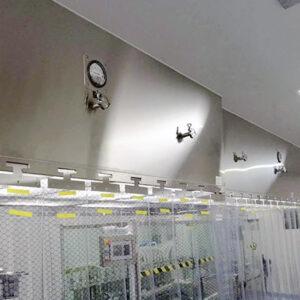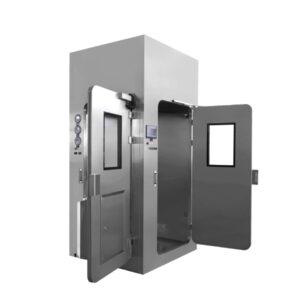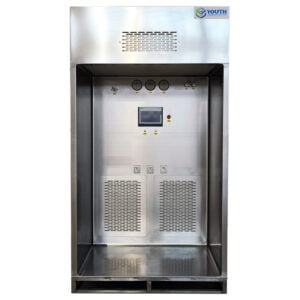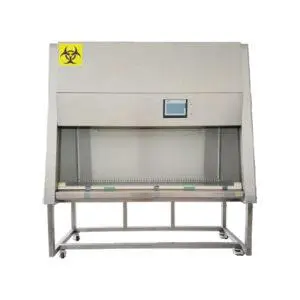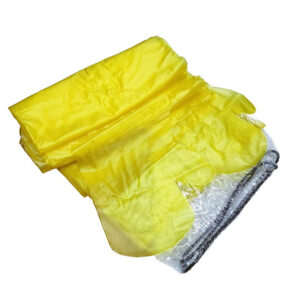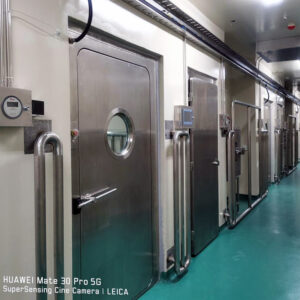In today's fast-paced industrial landscape, maintaining clean and safe environments is paramount across various sectors. Bag In Bag Out (BIBO) systems have emerged as a crucial component in this pursuit, offering a reliable method for contamination control and worker safety. As industries evolve and face unique challenges, the need for customized BIBO solutions has become increasingly apparent. This article delves into the world of customizing BIBO systems to meet specific industry needs, exploring how these tailored solutions are revolutionizing contamination control across diverse sectors.
From pharmaceuticals to biotechnology, and from healthcare to electronics manufacturing, each industry presents its own set of requirements when it comes to air quality and contamination prevention. Standard BIBO systems, while effective, may not always address the nuanced demands of specialized environments. This is where customization steps in, offering a range of modifications and enhancements that can significantly improve the effectiveness and efficiency of BIBO systems in specific industrial applications.
As we navigate through the intricacies of customized BIBO systems, we'll explore the various aspects of tailoring these crucial components to meet industry-specific needs. We'll examine how customization can enhance performance, improve safety, and optimize operational efficiency across different sectors. By understanding the potential of customized BIBO solutions, industries can better equip themselves to maintain the highest standards of cleanliness and safety in their operations.
"Customized BIBO systems are not just a luxury; they're a necessity for industries dealing with critical contamination control requirements. By tailoring these systems to specific needs, companies can significantly enhance their operational safety and efficiency."
Let's dive into the world of customized BIBO systems and discover how they're shaping the future of contamination control across industries.
| Industry | Standard BIBO Features | Customization Options |
|---|---|---|
| Pharmaceuticals | Basic HEPA filtration | Enhanced sterility, multiple filtration stages |
| Biotechnology | Standard containment | Biosafety level-specific modifications |
| Healthcare | General air purification | Pathogen-specific filtration systems |
| Electronics | Particle removal | ESD protection, ultra-fine particle filtration |
| Nuclear | Basic radiation shielding | Advanced radiation containment, remote handling |
| Food Processing | Standard hygiene control | Specialized antimicrobial materials, CIP compatibility |
How do customized BIBO systems address unique industry challenges?
The customization of BIBO systems begins with a thorough understanding of the specific challenges faced by different industries. Each sector has its own set of regulations, safety requirements, and operational constraints that must be addressed.
For instance, the pharmaceutical industry requires ultra-clean environments to prevent cross-contamination and ensure product purity. Customized BIBO systems for this sector might include enhanced sealing mechanisms, multiple stages of filtration, and materials that can withstand frequent sterilization processes.
In contrast, the electronics industry might prioritize the removal of ultra-fine particles and the prevention of electrostatic discharge. BIBO systems tailored for this sector could incorporate specialized conductive materials and advanced filtration technologies capable of capturing sub-micron particles.
"By tailoring BIBO systems to specific industry needs, we can create solutions that not only meet but exceed regulatory requirements and operational expectations."
| Industry | Unique Challenge | Customized BIBO Solution |
|---|---|---|
| Pharmaceuticals | Cross-contamination | Multi-stage filtration with sterile materials |
| Electronics | Electrostatic discharge | Conductive housing and grounding systems |
| Biotechnology | Biosafety levels | Containment-specific designs and protocols |
What materials and design modifications are used in custom BIBO systems?
The customization of BIBO systems often begins with the selection of materials. Depending on the industry and application, materials can range from standard stainless steel to specialized polymers or even exotic alloys for extreme environments.
Design modifications play a crucial role in customization. For industries dealing with highly toxic substances, BIBO systems might incorporate double-bag designs or additional sealing mechanisms to ensure zero leakage. In contrast, industries requiring frequent filter changes might opt for designs that prioritize ease of access and quick changeout procedures.
The 'YOUTH Clean Tech' offers a range of customizable BIBO solutions, including variations in bag materials, housing designs, and sealing mechanisms to meet specific industry requirements.
"The materials and design of a BIBO system can make the difference between adequate and exceptional performance. Customization in these areas is key to addressing industry-specific challenges effectively."
| Material/Design Feature | Benefit | Industry Application |
|---|---|---|
| 316L Stainless Steel | Corrosion resistance | Pharmaceutical, Food Processing |
| PTFE Coatings | Chemical resistance | Chemical Manufacturing |
| Double-Bag Design | Enhanced containment | Nuclear, Biohazard Handling |
| Quick-Change Mechanism | Reduced downtime | High-volume Manufacturing |
How do airflow configurations vary in customized BIBO systems?
Airflow configuration is a critical aspect of BIBO system customization. Different industries require various airflow patterns to ensure optimal contamination control and operational efficiency.
Vertical airflow configurations are common in applications where gravity-assisted particle settling is beneficial. This setup is often used in pharmaceutical clean rooms and biotechnology facilities. On the other hand, horizontal airflow configurations might be preferred in applications where space is limited or where specific process requirements dictate a lateral air movement.
Some advanced customizations include multi-directional airflow systems that can adapt to changing conditions or process requirements. These systems offer unprecedented flexibility in contamination control strategies.
"The right airflow configuration can dramatically improve the efficiency of a BIBO system. Customization in this area allows industries to optimize their contamination control strategies for specific processes and environments."
| Airflow Configuration | Advantage | Industry Application |
|---|---|---|
| Vertical Downflow | Gravity-assisted particle settling | Pharmaceutical Clean Rooms |
| Horizontal Flow | Space-efficient design | Confined Industrial Spaces |
| Multi-directional | Adaptable to changing conditions | Versatile Manufacturing Facilities |
What role do filtration technologies play in custom BIBO solutions?
Filtration technology lies at the heart of BIBO systems, and customization in this area can significantly enhance performance for specific industry needs. While HEPA filters are standard in many applications, some industries require even more advanced filtration technologies.
For instance, the semiconductor industry might require ultra-low penetration air (ULPA) filters capable of capturing particles as small as 0.1 microns with 99.9995% efficiency. In contrast, industries dealing with gaseous contaminants might incorporate activated carbon filters or other specialized media into their BIBO systems.
Some customized BIBO solutions even incorporate multi-stage filtration systems, combining different types of filters to address a wide range of contaminants. This approach is particularly useful in industries like pharmaceuticals, where both particulate and gaseous contaminants need to be controlled.
"Advanced filtration technologies in customized BIBO systems can provide unparalleled contamination control, addressing even the most challenging industrial environments with precision and efficiency."
| Filtration Technology | Capability | Industry Application |
|---|---|---|
| ULPA Filters | 99.9995% efficiency at 0.1 microns | Semiconductor Manufacturing |
| Activated Carbon | Gaseous contaminant removal | Chemical Processing |
| Multi-stage Systems | Comprehensive contaminant control | Pharmaceutical Production |
How do safety features evolve in customized BIBO systems?
Safety is paramount in BIBO system design, and customization allows for the incorporation of advanced safety features tailored to specific industry risks. In high-risk environments, such as those dealing with biohazardous materials or radioactive substances, BIBO systems may incorporate additional containment features.
For example, some customized BIBO systems include safety interlocks that prevent the opening of contaminated sections without proper procedures being followed. Others might incorporate real-time monitoring systems that alert operators to any breaches in containment or drops in filtration efficiency.
In industries where worker safety is a primary concern, BIBO systems might be designed with ergonomic considerations, reducing the risk of injury during filter changes or maintenance procedures.
"Enhanced safety features in customized BIBO systems not only protect workers and the environment but also ensure compliance with stringent industry regulations and standards."
| Safety Feature | Function | Industry Application |
|---|---|---|
| Safety Interlocks | Prevent unauthorized access | Biohazard Laboratories |
| Real-time Monitoring | Alert system for containment breaches | Nuclear Facilities |
| Ergonomic Design | Reduce worker injury risk | High-frequency Maintenance Environments |
What automation and control systems are integrated into custom BIBO solutions?
As industries move towards greater automation and digital integration, customized BIBO systems are evolving to incorporate advanced control and monitoring capabilities. These enhancements allow for more precise control over system performance and easier integration with facility-wide management systems.
Some customized BIBO systems now include smart sensors that continuously monitor air quality, pressure differentials, and filter performance. This data can be integrated into building management systems, allowing for real-time adjustments and predictive maintenance scheduling.
In industries with stringent documentation requirements, such as pharmaceuticals, automated logging and reporting features can be incorporated into BIBO systems. This ensures accurate record-keeping and simplifies compliance with regulatory standards.
"The integration of advanced automation and control systems in customized BIBO solutions not only enhances performance but also provides valuable data for process optimization and regulatory compliance."
| Automation Feature | Benefit | Industry Application |
|---|---|---|
| Smart Sensors | Real-time performance monitoring | Critical Manufacturing Processes |
| Automated Logging | Simplified compliance documentation | Pharmaceutical Production |
| Predictive Maintenance | Reduced downtime and optimized performance | Continuous Production Facilities |
How do customized BIBO systems adapt to emerging industry trends?
As industries evolve and new challenges emerge, the customization of BIBO systems continues to adapt. One significant trend is the move towards more sustainable and energy-efficient solutions across all sectors.
Customized BIBO systems are now being designed with energy efficiency in mind, incorporating features like variable speed fans and low-pressure drop filters. Some systems are even integrating renewable energy sources or heat recovery systems to further reduce their environmental impact.
Another emerging trend is the integration of BIBO systems with Industry 4.0 technologies. This includes the use of IoT sensors for real-time monitoring, AI-driven predictive maintenance, and even augmented reality interfaces for maintenance and training purposes.
"The ability of customized BIBO systems to adapt to emerging industry trends ensures that these critical contamination control solutions remain at the forefront of technological innovation and sustainability."
| Emerging Trend | BIBO Adaptation | Industry Benefit |
|---|---|---|
| Sustainability | Energy-efficient designs | Reduced operational costs, lower environmental impact |
| Industry 4.0 | IoT integration | Enhanced monitoring and predictive maintenance |
| AR/VR Technology | Augmented maintenance interfaces | Improved training and reduced human error |
In conclusion, the customization of BIBO systems represents a significant leap forward in contamination control technology. By tailoring these systems to meet specific industry needs, companies can achieve unprecedented levels of safety, efficiency, and regulatory compliance. From advanced materials and design modifications to cutting-edge filtration technologies and smart automation, customized BIBO solutions are addressing the unique challenges faced by various industries.
As we look to the future, the continued evolution of BIBO systems will likely play a crucial role in enabling industries to meet increasingly stringent environmental and safety standards. The ability to adapt these systems to emerging trends and technologies ensures that BIBO solutions will remain at the forefront of contamination control strategies across diverse sectors.
By investing in customized BIBO systems, industries not only protect their workers and products but also position themselves for long-term success in an ever-changing regulatory and technological landscape. As contamination control becomes increasingly critical in various sectors, the role of tailored BIBO solutions in maintaining clean, safe, and efficient operations cannot be overstated.
External Resources
Bag In Bag Out (BIBO) HEPA Filter Housings Market Size – This report discusses the market for BIBO HEPA filter housings, including the customization of these systems to meet specific industry needs, such as in the pharmaceutical, biotechnology, healthcare, and electronics sectors. It highlights the benefits of custom BIBO systems, including tailored designs and materials to fit unique operational conditions.
Bag In Bag Out – BIBO – YOUTH Clean Tech – This resource provides detailed information on custom BIBO systems, including variations in bag materials, housing designs, and sealing mechanisms. It also covers specialized configurations such as safety cabinets and portable BIBO units designed for specific industry applications.
Bag In Bag Out (BIBO) HEPA Filter Housings Market – This section of the report focuses on the segmentation of the BIBO HEPA filter housings market by type, including standard and custom BIBO systems. It explains how custom BIBO housings are designed to meet specific client requirements or unique operational conditions.
Custom BIBO Systems for Cleanroom Environments – This article from YOUTH Clean Tech discusses the customization of BIBO systems for cleanroom environments, including vertical and horizontal airflow configurations, and the use of multiple bags for enhanced containment in hazardous material handling.
Biotechnology and Pharmaceutical Sectors: BIBO HEPA Filter Housings – This part of the report emphasizes the critical role of BIBO HEPA filter housings in the biotechnology and pharmaceutical sectors, where maintaining sterile environments is essential. It highlights how custom BIBO systems are tailored to meet the stringent cleanliness and safety standards of these industries.
BIBO Filter Housing and Unit Solutions – YOUTH Clean Tech's resource on BIBO filter housing and unit solutions details the various customized options available, including single high-efficiency, medium efficiency plus high efficiency, and double high-efficiency configurations designed to address specific air quality demands.
Related Contents:
- Bag-In/Bag-Out (BIBO) Systems: Operation and Maintenance Guide
- The Cost-Effectiveness of BIBO Systems in Industrial Applications
- Unveiling the Power of Bag-In-Bag-Out Systems
- Safeguarding Sterility: BIBO Systems in Cross-Contamination Prevention
- The Intricate World of BIBO Filter Housing
- Evaluating BIBO Systems’ Efficiency in Particle Removal
- BIBO Systems: Safeguarding Food Processing Safety
- Environmental Impact of BIBO Systems in Industrial Filtration
- Nuclear Safety Revolution: BIBO Systems Enhance Protection


